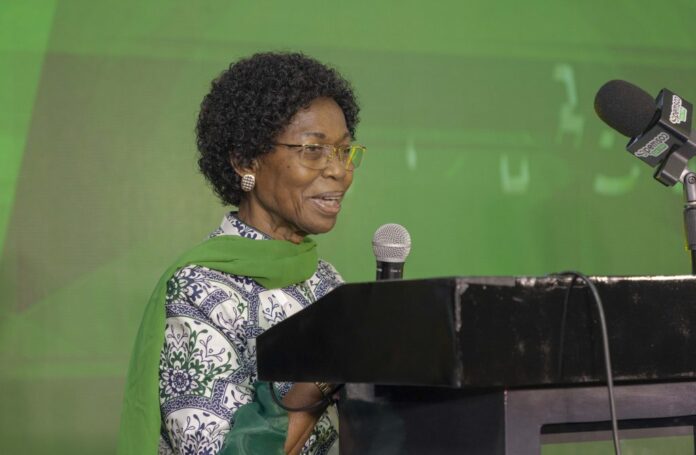A public health specialist from the University of Ghana, Prof. Isabella Quakyi, is emphasizing the importance of collaboration in building a robust healthcare infrastructure across Africa.
Speaking at the opening ceremony of the 2nd annual convening of the Africa Health Collaborative, in partnership with the Mastercard Foundation in Kumasi, she stated that collaboration among governments, communities, healthcare providers, and international stakeholders is crucial.
“The future of Africa’s healthcare system will be defined by partnerships. Together we can build resilient, equitable health systems that not only serve Africa but also contribute to global health advancement,” she said.
The annual Africa Health Collaborative convening brings together key stakeholders from Africa and beyond to collectively address shared health-sector challenges through a network approach.
The convening also seeks to engage relevant health ecosystem partners and youth in knowledge exchange and to deepen the collaborations among partner institutions within the Higher Education Health Collaborative.
The Kwame Nkrumah University of Science and Technology, Kumasi, Ghana, is hosting the 2024 annual convening of the Africa Health Collaborative from October 21 to 25, under the theme: “Nyansapo: Innovating Health Systems in Africa for Africa and the World.”
Prof. Quakyi added, “Collective path forward, Nyansapo is more than a symbol. It is a call for collaboration, innovation, and shared responsibility. Let’s commit to improving health outcomes and making a lasting impact on global health.”
She also stressed the importance of emergency preparedness in securing Africa’s healthcare system.
“The global pandemic showed us the fragility of health systems worldwide. In Africa, we learned that resilience must be built into our healthcare systems if we’re to survive future crises. Throughout my career, whether in vaccine development or immunology, I have advocated for the importance of preparedness. Nyansapo is leading the charge in building healthcare infrastructure that is capable of withstanding future pandemics and emergencies. By investing in emergency preparedness, digital health platforms, and data management systems, we can ensure Africa is equipped to respond rapidly to the challenges ahead,” she said.
The Principal Investigator of the Africa Health Collaborative, KNUST, and Chairman of the Executive Steering Committee of the Collaborative, Prof. Ellis Owusu-Dabo, urged the partnering institutions to create an enabling environment for innovation.
“This begins with leadership that encourages collaboration at all levels, learning the simple art of listening. It’s a good way to start. When we prioritize collaboration, we foster an environment where innovation thrives. No idea is too small or stupid when everyone feels empowered to contribute,” he said.
The Minister of Health, Dr. Bernard Okoe Boye, praised the Collaborative for championing initiatives aimed at tackling emerging diseases, particularly non-communicable diseases.
KNUST Vice-Chancellor, Prof. Rita Akosua Dickson urged participants to remain open to new ideas and perspectives that can enhance the Collaborative’s efforts.
“Let us leave no one behind, particularly the young people who are enriched with innovative ideas,” the Pro Vice-Chancellor, Prof. David Asamoah, said on her behalf.


